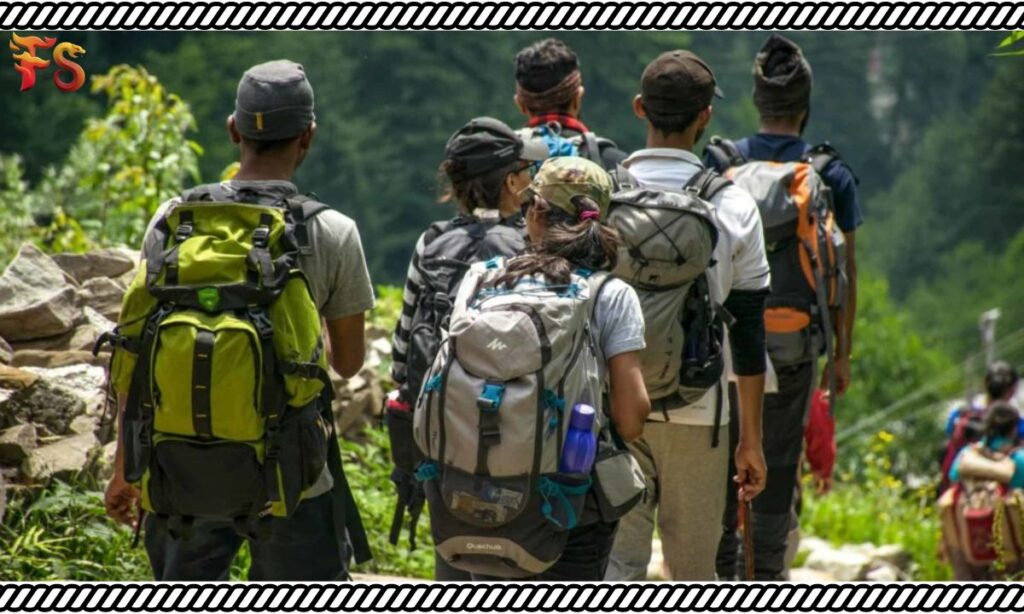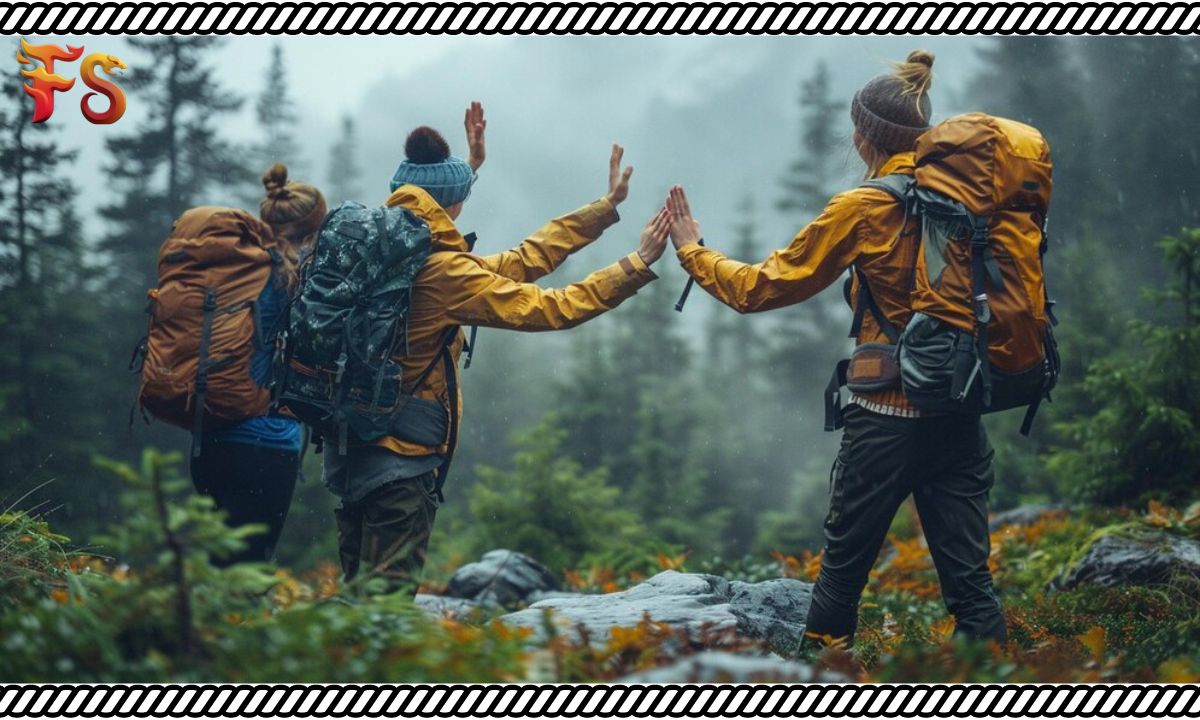Welcome to AdventureTwo.net! We’re your ultimate resource for outdoor adventures. Our mission is to inspire and guide adventurers of all levels.
From beginners to seasoned explorers, we’ve got you covered. Our blog offers tips, tricks, and insider knowledge. Dive in and discover the wonders of the great outdoors with us.
Choosing Your adventuretwo.net Destination
Selecting the perfect destination is crucial. Consider your skill level and interests. Research the climate and terrain of potential locations. National parks offer diverse landscapes and well-maintained trails. For a more rugged experience, look into wilderness areas.
Coastal regions provide opportunities for beach camping and water sports. Mountain ranges challenge hikers and climbers alike. Don’t forget to check local regulations and permit requirements. Choose a destination that aligns with your goals and abilities.
Essential Gear for Outdoor adventuretwo.net
Proper gear can make or break your adventure. Start with a reliable backpack that fits comfortably. Invest in high-quality, waterproof hiking boots. Pack moisture-wicking clothing and layers for changing temperatures. Don’t forget a first-aid kit and emergency supplies.
Bring a map, compass, and consider a GPS device for navigation. Pack a water filtration system and plenty of snacks. Sunscreen, insect repellent, and a hat are essential for sun protection. For overnight trips, invest in a quality tent and sleeping bag. Remember, the right gear enhances safety and comfort.
Planning and Preparation

Thorough planning is key to a successful adventure. Research your destination extensively. Create a detailed itinerary and share it with someone at home. Check weather forecasts and trail conditions. Familiarize yourself with local wildlife and potential hazards.
Practice using your gear before the trip. Prepare physically by training for your adventure’s demands. Learn basic first aid and wilderness survival skills. Pack appropriately for the duration and difficulty of your trip. Double-check all your gear and supplies before departing.
READ THIS BLOG:
Safety Tips for Outdoor adventuretwo.net
Safety should always be your top priority. Stay alert and aware of your surroundings. Carry a whistle for emergencies. Know how to identify and avoid poisonous plants. Be prepared for sudden weather changes. Carry extra food, water, and warm clothing.
Learn how to safely encounter wildlife. Tell someone your plans and expected return time. Carry a fully charged cell phone, but don’t rely solely on it. Know your limits and don’t push yourself too hard. Always trust your instincts in uncertain situations.
Sustainable and Responsible Travel
Practice Leave No Trace principles. Pack out all trash, including biodegradable items. Stay on marked trails to prevent erosion. Respect wildlife and observe from a distance. Use biodegradable soap for washing. Minimize campfire impacts by using established fire rings.
Support local communities by buying local products. Learn about and respect local cultures and customs. Use reusable water bottles and containers. Participate in local conservation efforts when possible. Educate others about responsible outdoor practices.
Hiking Tips for Beginners

Start with shorter, well-marked trails. Gradually increase distance and difficulty. Wear comfortable, broken-in hiking boots. Bring more water than you think you’ll need. Use trekking poles for stability on uneven terrain.
Take frequent breaks and stay hydrated. Learn to recognize trail markers and signs. Hike with a buddy for safety. Start early to avoid afternoon heat and storms. Pay attention to your surroundings and enjoy the journey.
Advanced Hiking Techniques
Master the art of pacing for long-distance hikes. Learn proper footwork for different terrains. Practice efficient uphill and downhill techniques. Understand how to cross streams and rivers safely. Develop skills for hiking in various weather conditions.
Learn to read topographic maps for better navigation. Master the use of trekking poles for increased efficiency. Understand proper nutrition and hydration for extended hikes. Learn how to assess and manage risk in challenging terrain. Practice leave-no-trace principles in remote areas.
Camping and Overnight adventuretwo.net
Choose a suitable campsite away from water sources. Set up camp before dark. Store food properly to avoid attracting wildlife. Learn how to properly pitch your tent. Bring a sleeping pad for insulation and comfort. Master the art of campfire cooking.
Practice proper waste disposal techniques. Bring appropriate clothing for nighttime temperatures. Learn to identify constellations for nighttime entertainment. Respect quiet hours and your fellow campers.
Exploring National Parks
Research park regulations and obtain necessary permits. Take advantage of ranger-led programs and hikes. Visit during off-peak seasons to avoid crowds. Explore lesser-known areas of popular parks. Learn about the park’s unique ecosystems and wildlife.
Use park shuttles when available to reduce traffic. Support park conservation efforts. Respect closures and wildlife protection areas. Capture memories responsibly without disturbing nature. Leave the park better than you found it.
Water-Based adventuretwo.net
Always wear a properly fitted life jacket for water activities. Check weather and water conditions before setting out. Learn basic water rescue techniques. Understand river classifications for safe kayaking and rafting.
Practice proper paddling techniques for kayaking and canoeing. Learn to read water currents and avoid hazards. Bring waterproof gear for your belongings. Know how to safely exit a capsized boat. Respect marine life and ecosystems. Be aware of tides and currents for coastal adventures.
Mountain Climbing and Rock Climbing
Start with a certified instructor to learn proper techniques. Always use appropriate safety gear. Learn to tie essential climbing knots. Practice proper belaying techniques. Understand route grading systems. Learn to read climbing guidebooks and topo maps.
Master basic bouldering skills before tackling larger climbs. Develop a solid understanding of anchor systems. Practice leave-no-trace climbing ethics. Always climb with a partner and use proper communication.
Wildlife Watching and Birding
Invest in quality binoculars for better viewing. Learn to identify common species in your area. Understand animal behavior to predict sightings. Use field guides or apps for species identification. Practice quiet observation techniques.
Visit during prime viewing seasons. Respect wildlife by maintaining a safe distance. Learn to recognize animal tracks and signs. Participate in local birding groups or guided tours. Keep a log of your sightings for future reference.
Photography Tips for Outdoor adventuretwo.net
Invest in a weather-resistant camera or protective gear. Learn to use manual settings for better control. Understand the rule of thirds for composition. Capture the golden hours of sunrise and sunset. Use a tripod for sharper images in low light.
Experiment with different perspectives and angles. Learn to edit your photos to enhance natural beauty. Respect wildlife and don’t disturb the perfect shot. Carry extra batteries and memory cards. Tell a story with your images.
Survival Skills in the Wilderness
Learn to build a shelter using natural materials. Master the art of fire-starting in various conditions. Understand basic navigation using a map and compass. Learn to find and purify water in the wild. Identify edible plants in your region.
Practice signal techniques for rescue situations. Learn basic first aid and wound care. Understand how to stay calm in emergency situations. Practice knot-tying for various uses. Learn to improvise tools from natural materials.
Navigating Remote Areas
Master map and compass skills. Understand how to use GPS devices. Learn to recognize natural landmarks. Practice dead reckoning techniques. Understand how to navigate using the sun and stars. Learn to read weather patterns.
Develop a sense of direction and spatial awareness. Always have a backup navigation method. Know how to mark your trail for backtracking. Practice navigation skills in familiar areas before venturing into remote terrain.
Benefits of Outdoor adventuretwo.net
Outdoor activities improve physical health and fitness. Nature exposure reduces stress and anxiety. Adventure builds confidence and self-reliance. Outdoor challenges enhance problem-solving skills. Nature connection improves mental well-being.
Outdoor activities provide vitamin D from sunlight. Adventure sports improve balance and coordination. Nature experiences boost creativity and cognitive function. Outdoor group activities enhance social bonds. Regular outdoor time improves sleep quality.
adventuretwo.net with Children
Start with short, achievable hikes or activities. Make it fun with games and scavenger hunts. Teach children about nature and conservation. Ensure proper gear and clothing for little adventurers. Plan frequent breaks and bring plenty of snacks.
Let children set the pace and explore. Incorporate educational elements into the trip. Practice safety skills together. Encourage curiosity about plants and animals. Create lasting memories through shared experiences.
adventuretwo.net for Solo Travelers
Inform someone of your detailed plans. Carry proper safety and communication devices. Trust your instincts and stay aware of your surroundings. Join local groups or guided tours for some activities. Enjoy the freedom to set your own pace.
Use solo travel as a time for self-reflection. Be extra cautious with challenging activities. Meet fellow travelers at hostels or campsites. Learn to enjoy your own company in nature. Always have a backup plan.
Group adventuretwo.net and Team Building
Choose activities suitable for all group members. Assign roles to involve everyone. Use challenges to build trust and cooperation. Encourage open communication within the group. Plan team-building exercises in natural settings.
Learn to compromise and make group decisions. Celebrate team achievements together. Use nature as a backdrop for problem-solving activities. Foster a supportive environment for all skill levels. Create shared experiences that strengthen bonds.
ALSO READ THIS BLOG: AdventureTwo.net Blog: Your Ultimate Guide to Outdoor Adventures
Seasonal adventuretwo.net
Embrace the unique beauty of each season. Prepare for seasonal weather changes and hazards. Try winter sports like skiing or snowshoeing. Enjoy spring wildflowers and wildlife watching. Take advantage of long summer days for extended trips.
Experience fall foliage through scenic hikes. Adapt your gear and clothing for each season. Learn about seasonal wildlife behavior. Participate in seasonal outdoor festivals and events. Discover how familiar locations transform throughout the year.
Adventurous Cuisine
Try local specialties and traditional dishes. Learn to forage for edible plants safely. Master the art of campfire cooking. Pack lightweight, nutrient-dense foods for trips. Try new cooking methods like solar ovens. Participate in local cooking classes or food tours.
Learn about the cultural significance of local cuisine. Experiment with outdoor cooking gadgets. Respect local fishing and hunting regulations. Share meals with fellow travelers for cultural exchange.
Cultural Experiences During adventuretwo.net
Research local customs and etiquette before your trip. Participate in local festivals and events. Learn a few phrases in the local language. Visit local markets and support artisans. Take guided tours led by community members.
Stay in locally-owned accommodations when possible. Respect sacred sites and follow local guidelines. Learn about traditional uses of local plants and animals. Participate in community-based tourism initiatives. Share your own culture while learning about others.
Frequently Asked Questions
What essential gear do I need for a day hike?
Essential gear includes comfortable hiking shoes, a backpack, water, snacks, a map, and first-aid kit.
How can I stay safe while hiking alone?
Inform someone of your plans, stay on marked trails, carry a communication device, and trust your instincts.
What’s the best way to avoid wildlife encounters?
Make noise while hiking, store food properly, and maintain a safe distance if you spot wildlife.
How do I choose the right camping tent?
Consider the season, capacity, weight, and ease of setup when selecting a tent.
What should I do if I get lost while hiking?
Stay calm, stay put if it’s safe, use your map and compass, and signal for help if needed.
Conclusion
Outdoor adventures offer endless opportunities for growth, discovery, and connection. With proper planning, respect for nature, and a spirit of curiosity, every adventure becomes a chance to learn and thrive. Remember to prioritize safety, practice sustainability, and embrace the unexpected.
Whether you’re a solo traveler, family explorer, or group adventurer, the outdoors has something special to offer. So gear up, step out, and let AdventureTwo.net guide you on your next unforgettable journey. The world is waiting – what will your next adventure be?

David: Seasoned financial expert with 5 years in banking and investments.
Skilled in personal finance, market analysis, and wealth management. Empowers clients to achieve financial goals.





